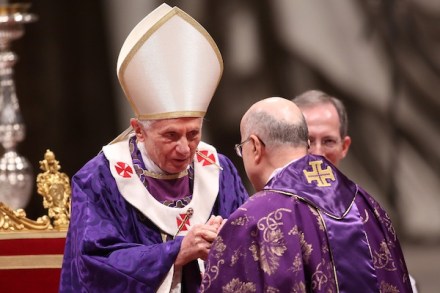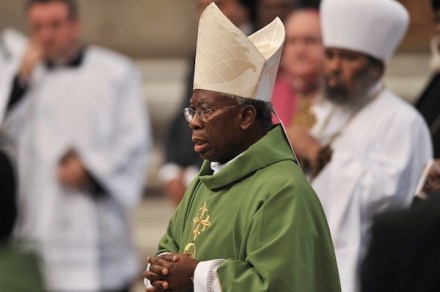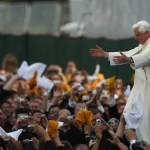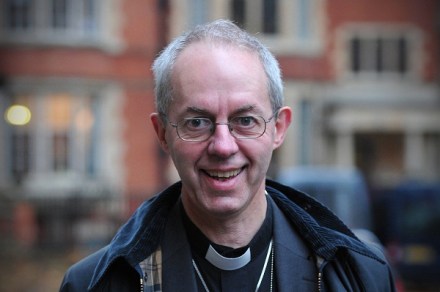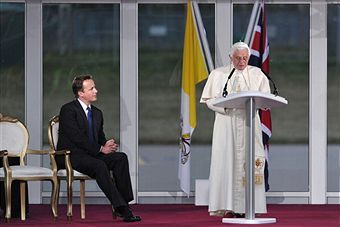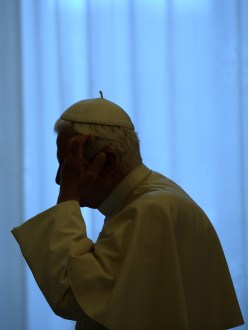How Pope Benedict’s wisdom was often lost in translation
The pope made his first public appearance since his resignation today, before putting ashes on the foreheads of pilgrims for Ash Wednesday. It’s one of those jos which isn’t itself particularly demanding but which amounts, together with the running of a global church and a mini state, to a role that would tax a younger man. He got a standing ovation reaction from the crowd at his audience. Rather different, then, from the pundits’ judgement here on his pontificate. If you take the BBC/Guardian/Independent as standard, the judgement is that this was a pontificate that failed and, as an editorial in the Independent put it yesterday, was bound to fail, given
